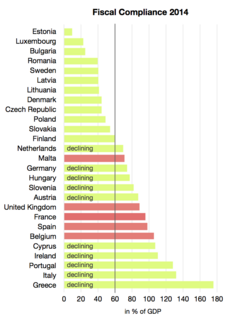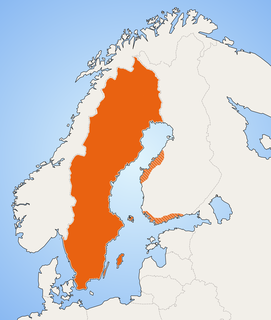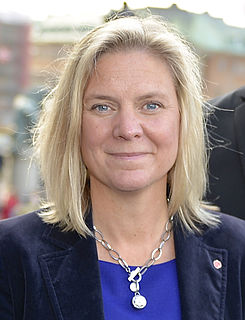
The Department of the Treasury (USDT) is an executive department and the treasury of the United States federal government. Established by an Act of Congress in 1789 to manage government revenue, the Treasury prints all paper currency and mints all coins in circulation through the Bureau of Engraving and Printing and the United States Mint, respectively; collects all federal taxes through the Internal Revenue Service; manages U.S. government debt instruments; licenses and supervises banks and thrift institutions; and advises the legislative and executive branches on matters of fiscal policy.

A finance minister is an executive or cabinet position in charge of one or more of government finances, economic policy and financial regulation. It may also be a junior minister in the finance department, the British Treasury, for example has four junior ministers.

The Treasurer of Australia is the minister in the Government of Australia responsible for government expenditure and revenue raising. The Treasurer plays a key role in the economic policy of the government. The current holder of the position is Josh Frydenberg, whose term began on 24 August 2018.

The Ministry of Finance, Revenue & Economic Affairs or Ministry of Finance is a ministry of the Government of Pakistan tasked to ensure a strong Pakistani economy by developing policies of sound economic management and providing expert advice to the government.

The Stability and Growth Pact (SGP) is an agreement, among the 28 member states of the European Union, to facilitate and maintain the stability of the Economic and Monetary Union (EMU). Based primarily on Articles 121 and 126 of the Treaty on the Functioning of the European Union, it consists of fiscal monitoring of members by the European Commission and the Council of Ministers, and the issuing of a yearly recommendation for policy actions to ensure a full compliance with the SGP also in the medium-term. If a Member State breaches the SGP's outlined maximum limit for government deficit and debt, the surveillance and request for corrective action will intensify through the declaration of an Excessive Deficit Procedure (EDP); and if these corrective actions continue to remain absent after multiple warnings, the Member State can ultimately be issued economic sanctions. The pact was outlined by a resolution and two council regulations in July 1997. The first regulation "on the strengthening of the surveillance of budgetary positions and the surveillance and coordination of economic policies", known as the "preventive arm", entered into force 1 July 1998. The second regulation "on speeding up and clarifying the implementation of the excessive deficit procedure", known as the "dissuasive arm", entered into force 1 January 1999.

The Federal Ministry of Finance, abbreviated BMF, is the cabinet-level finance ministry of Germany, with its seat at the Detlev-Rohwedder-Haus in Berlin and a secondary office in Bonn. The current Federal Minister of Finance is Olaf Scholz (SPD).
Monetary policy pertains to the regulation, availability, and cost of credit, while fiscal policy deals with government expenditures, taxes, and debt. Through management of these areas, the Ministry of Finance regulated the allocation of resources in the economy, affected the distribution of income and wealth among the citizenry, stabilized the level of economic activities, and promoted economic growth and welfare.

The Department of Budget and Management of the Republic of the Philippines (DBM) is an executive body under the Office of the President of the Philippines. It is responsible for the sound and efficient use of government resources for national development and also as an instrument for the meeting of national socio-economic and political development goals.

The Ministry of Economy and Finance oversees the financial policies of the South Korean government. It publishes a monthly report on the national economy, known as the "Green Book." The current minister is Hong Nam-ki. The headquarters is in the Sejong Government Complex in Sejong City.

The New Zealand Treasury is the central public service department of New Zealand charged with advising the Government on economic policy, assisting with improving the performance of New Zealand's economy, and managing financial resources.

Fiscal union is the integration of the fiscal policy of nations or states. Under fiscal union decisions about the collection and expenditure of taxes are taken by common institutions, shared by the participating governments.

The Office for Budget Responsibility (OBR) is a non-departmental public body that the UK government established to provide independent economic forecasts and independent analysis of the public finances. It was formally created in May 2010 following the general election and was placed on a statutory footing by the Budget Responsibility and National Audit Act 2011. It is one of a growing number of official independent fiscal watchdogs around the world.

The Fiscal Responsibility and Budget Management Act, 2003 (FRBMA) is an Act of the Parliament of India to institutionalize financial discipline, reduce India's fiscal deficit, improve macroeconomic management and the overall management of the public funds by moving towards a balanced budget and strengthen fiscal prudence. The main purpose was to eliminate revenue deficit of the country and bring down the fiscal deficit to a manageable 3% of the GDP by March 2008. However, due to the 2007 international financial crisis, the deadlines for the implementation of the targets in the act was initially postponed and subsequently suspended in 2009. In 2011, given the process of ongoing recovery, Economic Advisory Council publicly advised the Government of India to reconsider reinstating the provisions of the FRBMA. N. K. Singh is currently the Chairman of the review committee for Fiscal Responsibility and Budget Management Act, 2003, under the Ministry of Finance (India), Government of India.

The Euro-Plus Pact, was adopted in March 2011 under EU's Open Method of Coordination, as an intergovernmental agreement between all member states of the European Union, in which concrete commitments were made to be working continuously within a new commonly agreed political general framework for the implementation of structural reforms intended to improve competitiveness, employment, financial stability and the fiscal strength of each country. The plan was advocated by the French and German governments as one of many needed political responses to strengthen the EMU in areas which the European sovereign-debt crisis had revealed as being too poorly constructed.
The Swedish National Council for Crime Prevention is a Swedish government agency organized under the Ministry of Justice, and acts as a center for research and development within the judicial system.
The Swedish Arts Council is a Swedish administrative authority organized under the Ministry of Culture, and is tasked with promoting culture and its availability by distributing and following up on government grants, on the basis of the national cultural policy objectives, as determined by the Riksdag. The agency works to promote particular artistic and cultural-valuable development in activities related to the performing arts, music, literature, art magazines, public libraries and the fine arts; as well as museums and exhibitions, regional cultural activities and national minorities' culture.
The High Council of Public Finances (HCFP) is an independent fiscal oversight body created by the Organic Law 2012-1403 in December 2012 by the french government in the framework European Union budgetary coordination. Its aim is to evaluate the assumptions made by the government in relation to the budgets and to ensure the coherence of public finances with the European budgetary agreements and pacts to which France is party. The HCFP operates under the responsibility of the Court of Audit.

The VATT Institute for Economic Research, previously the Government Institute for Economic Research is a government agency in Finland producing research data in support of economic policy decisions and discussion of alternative courses of action.. VATT is an acronym from VAltion (Government) Taloudellinen (Economic)Tutkimuskeskus. The research institute operates under the administrative domain of the Ministry of Finance.
The Economic Policy Council in Finland was established in 2014 to provide independent evaluation of the objectives of economic policy and the effectiveness of the policy measures chosen. The council publishes an annual report evaluating recent economic policy decisions in Finland.















